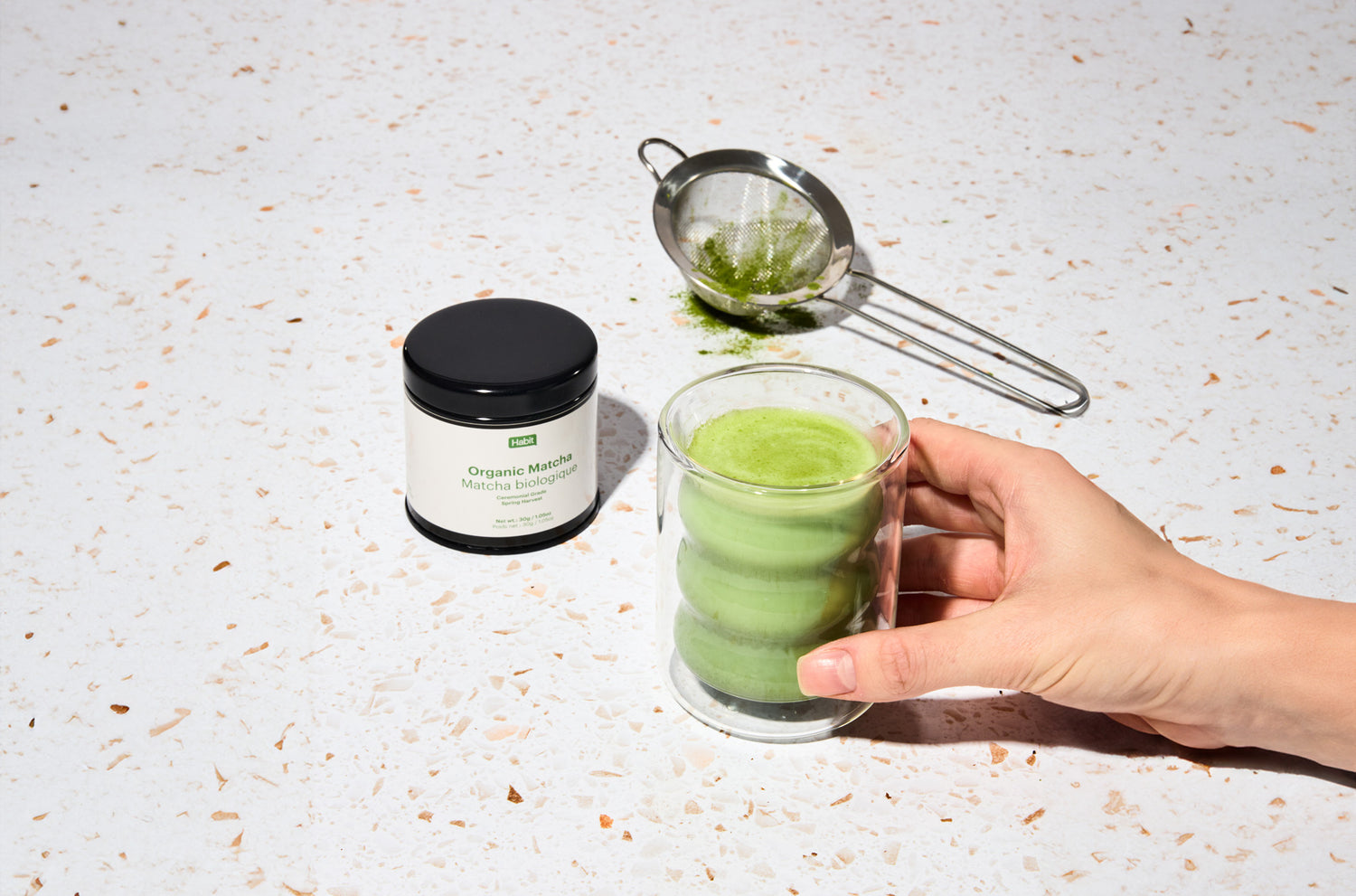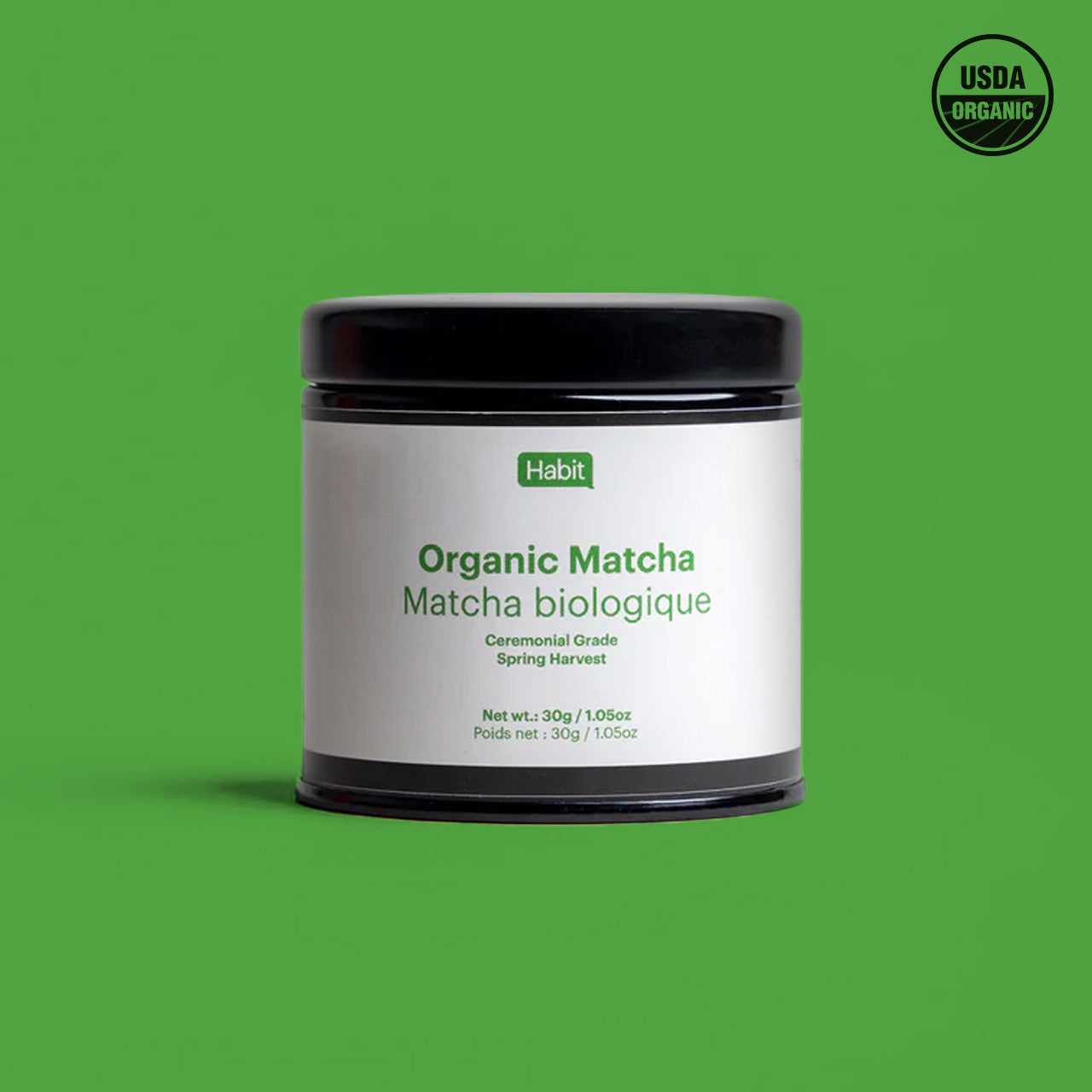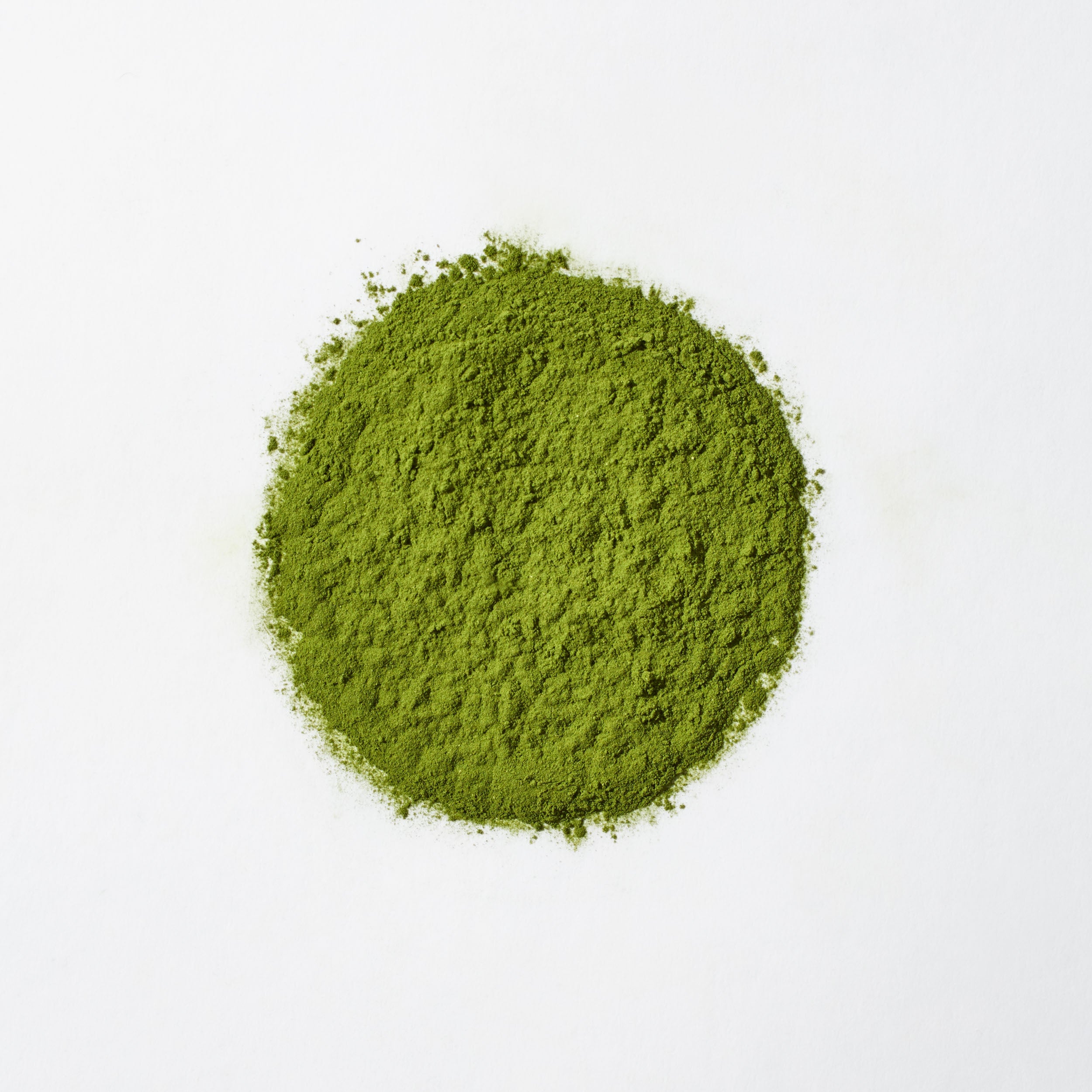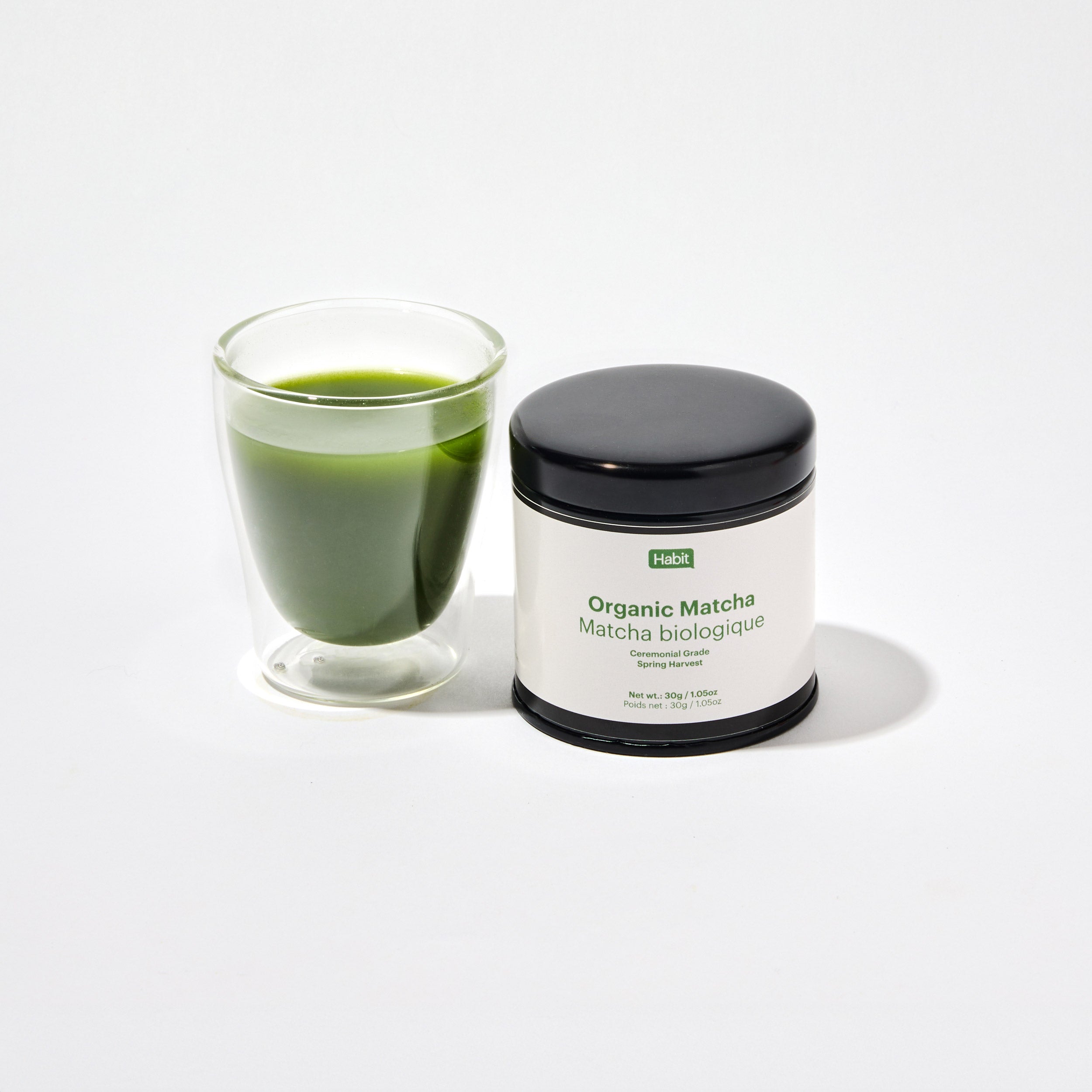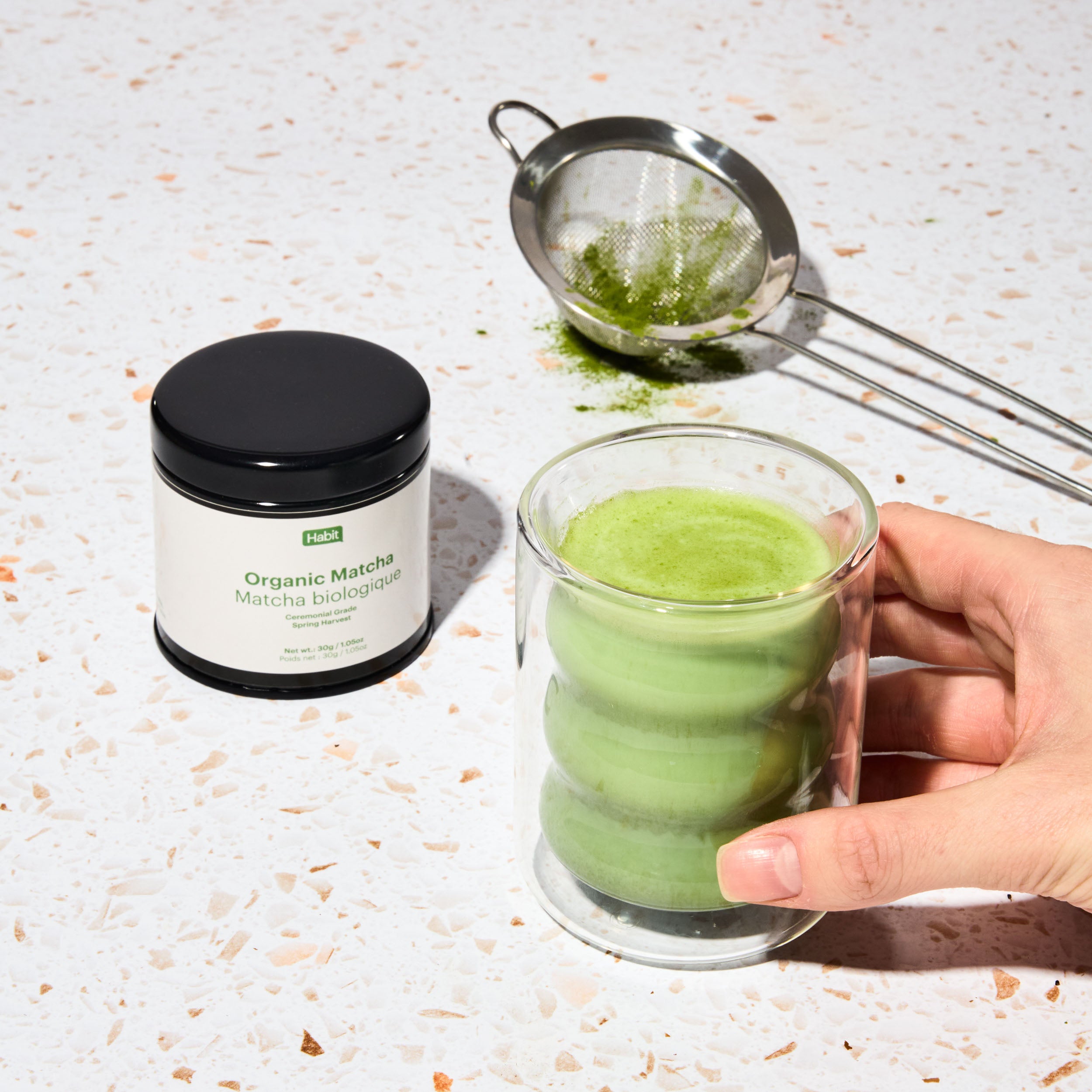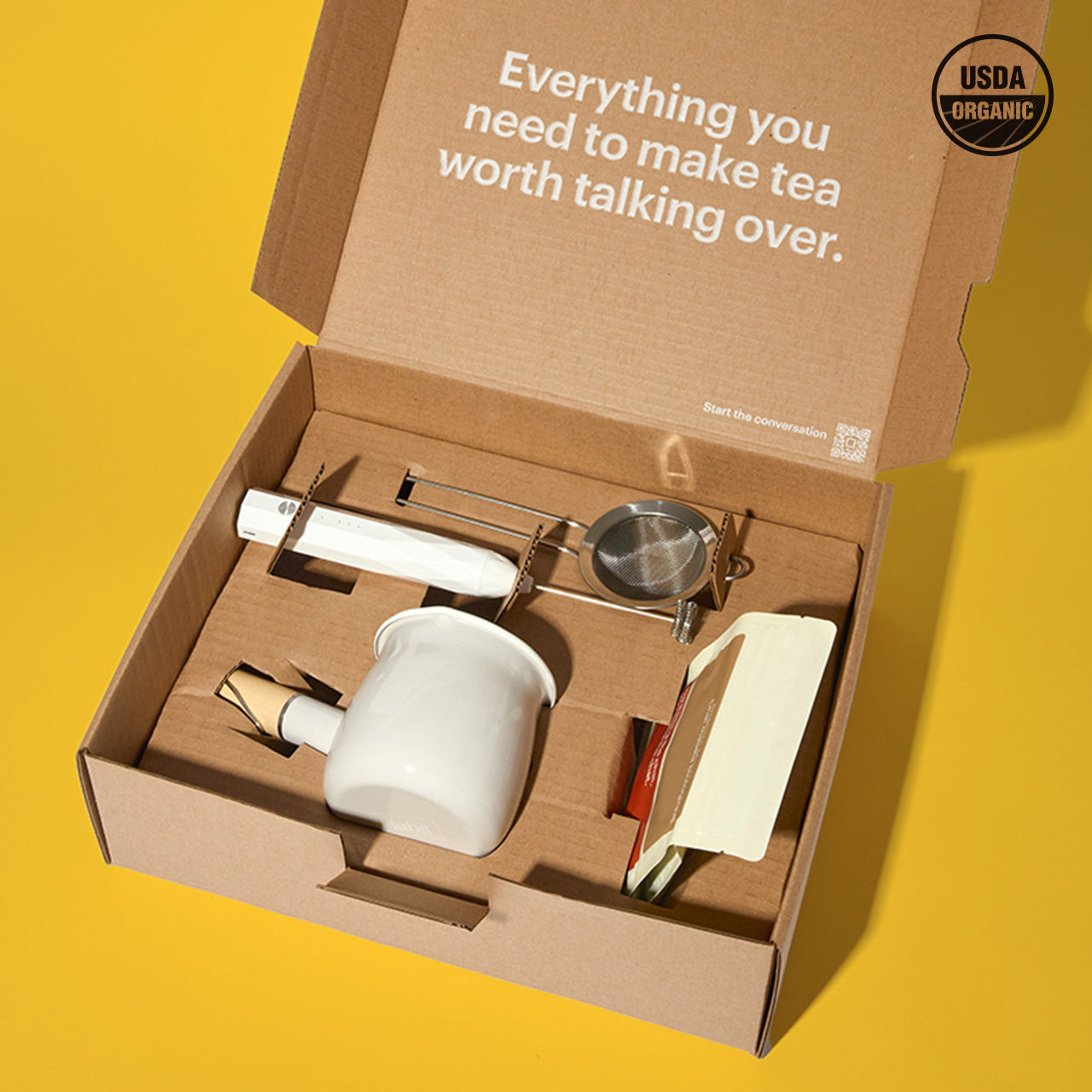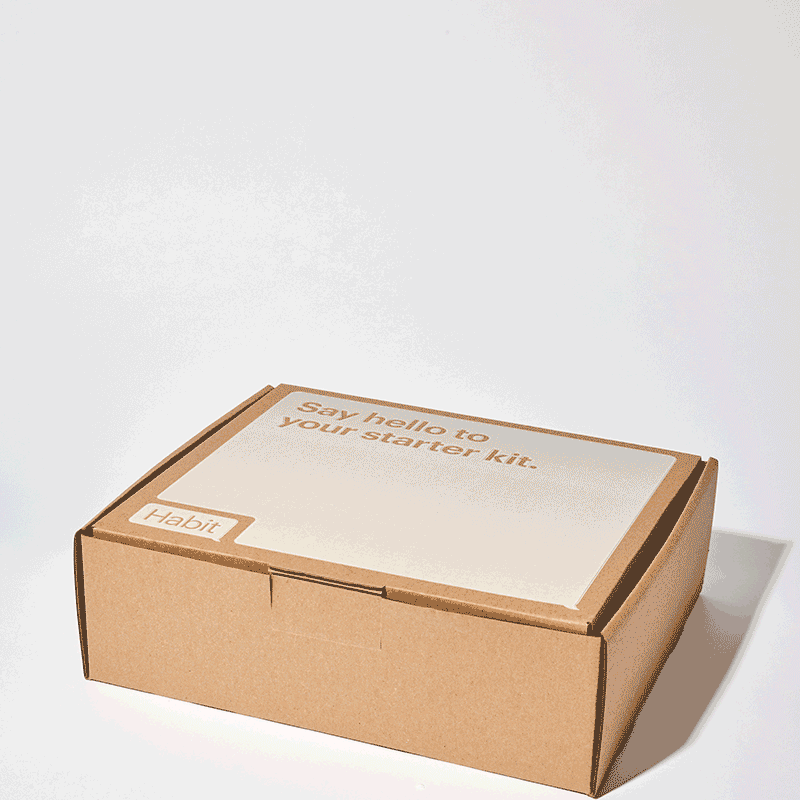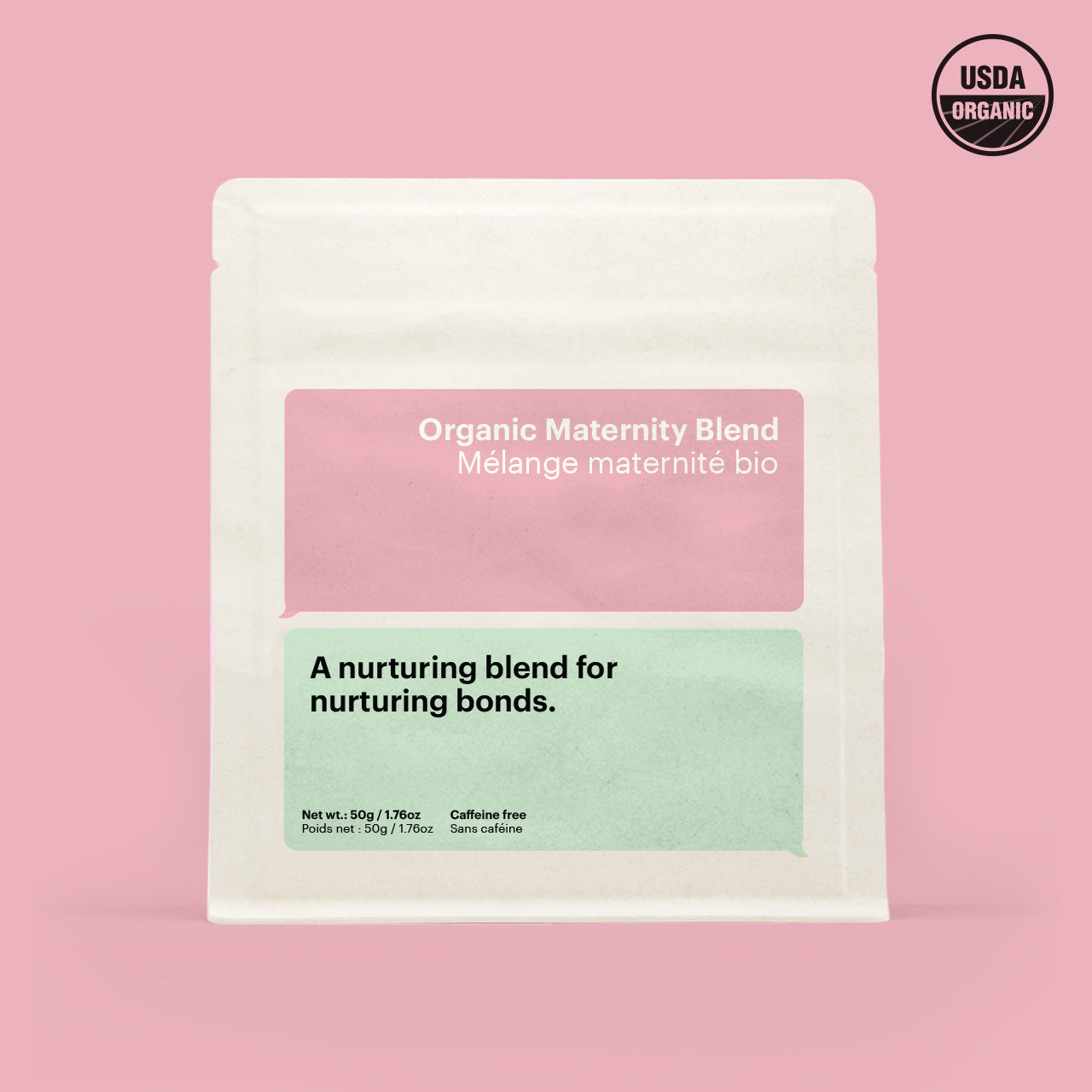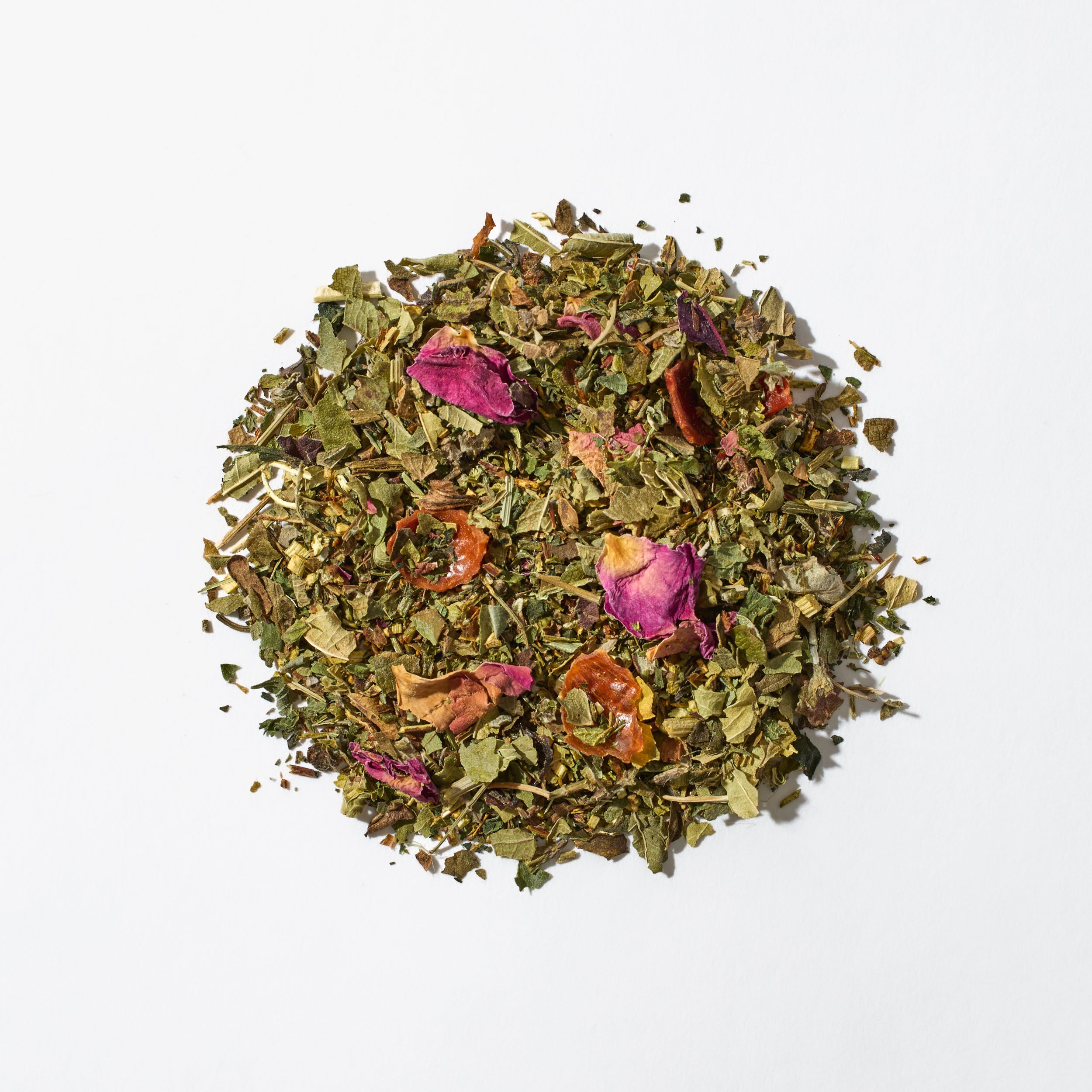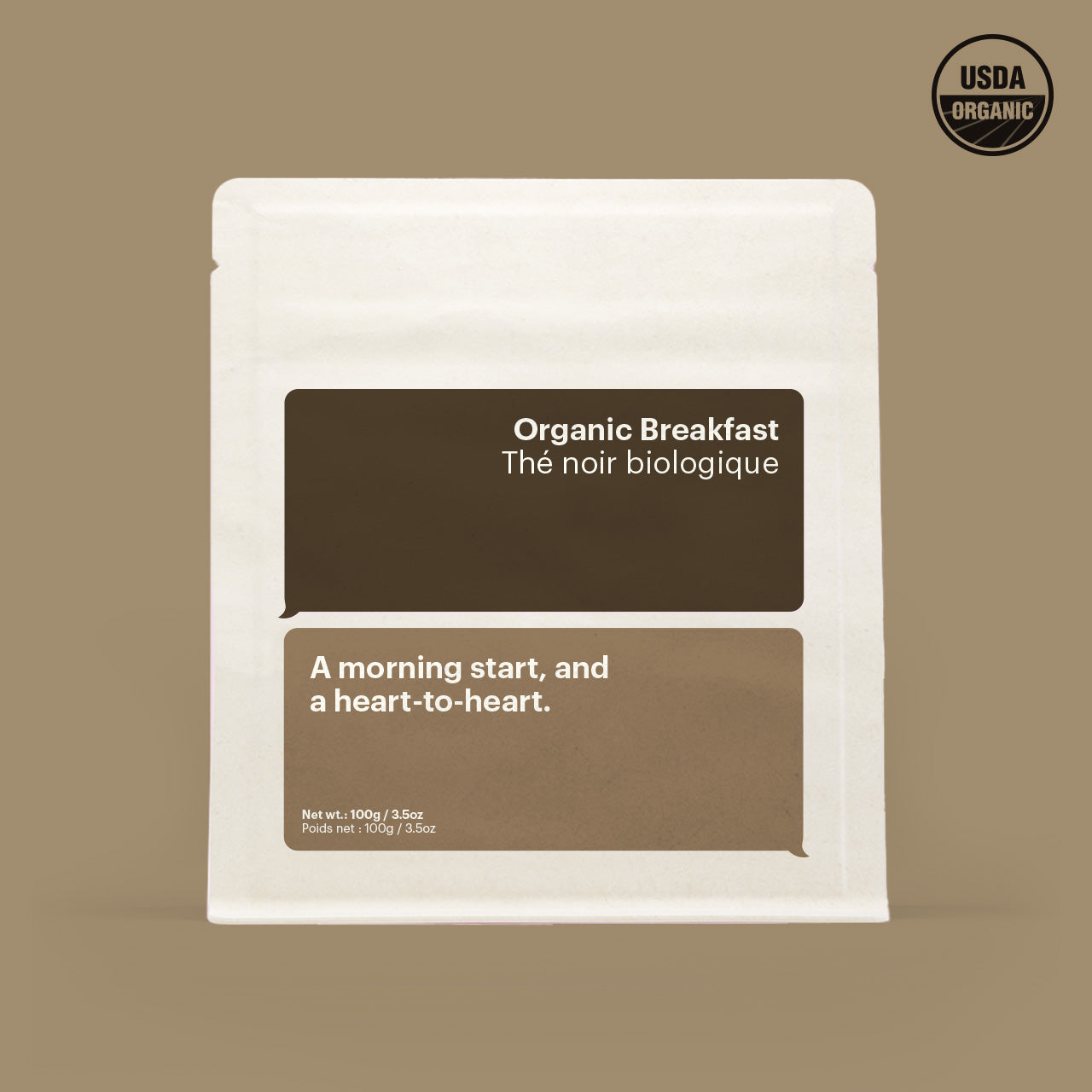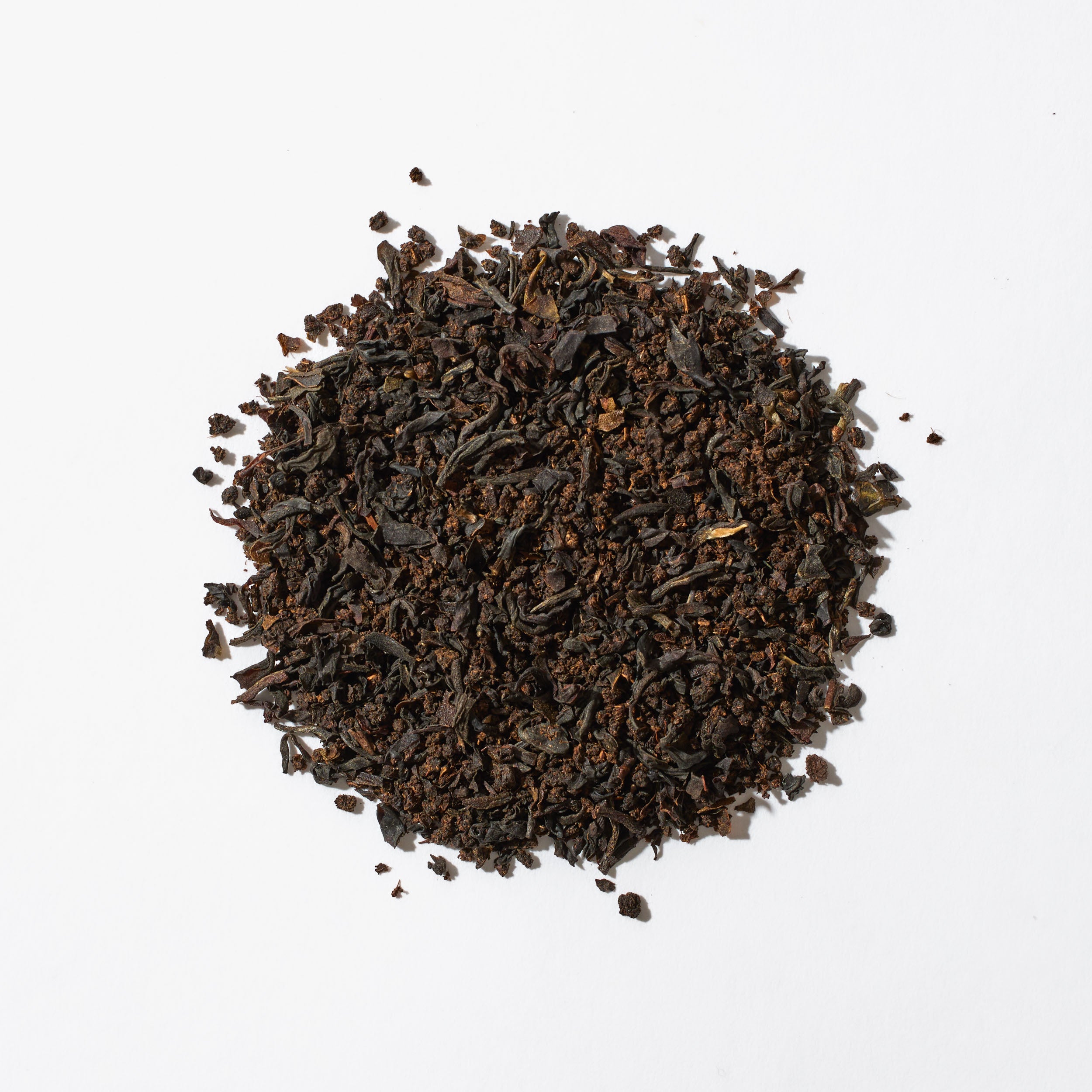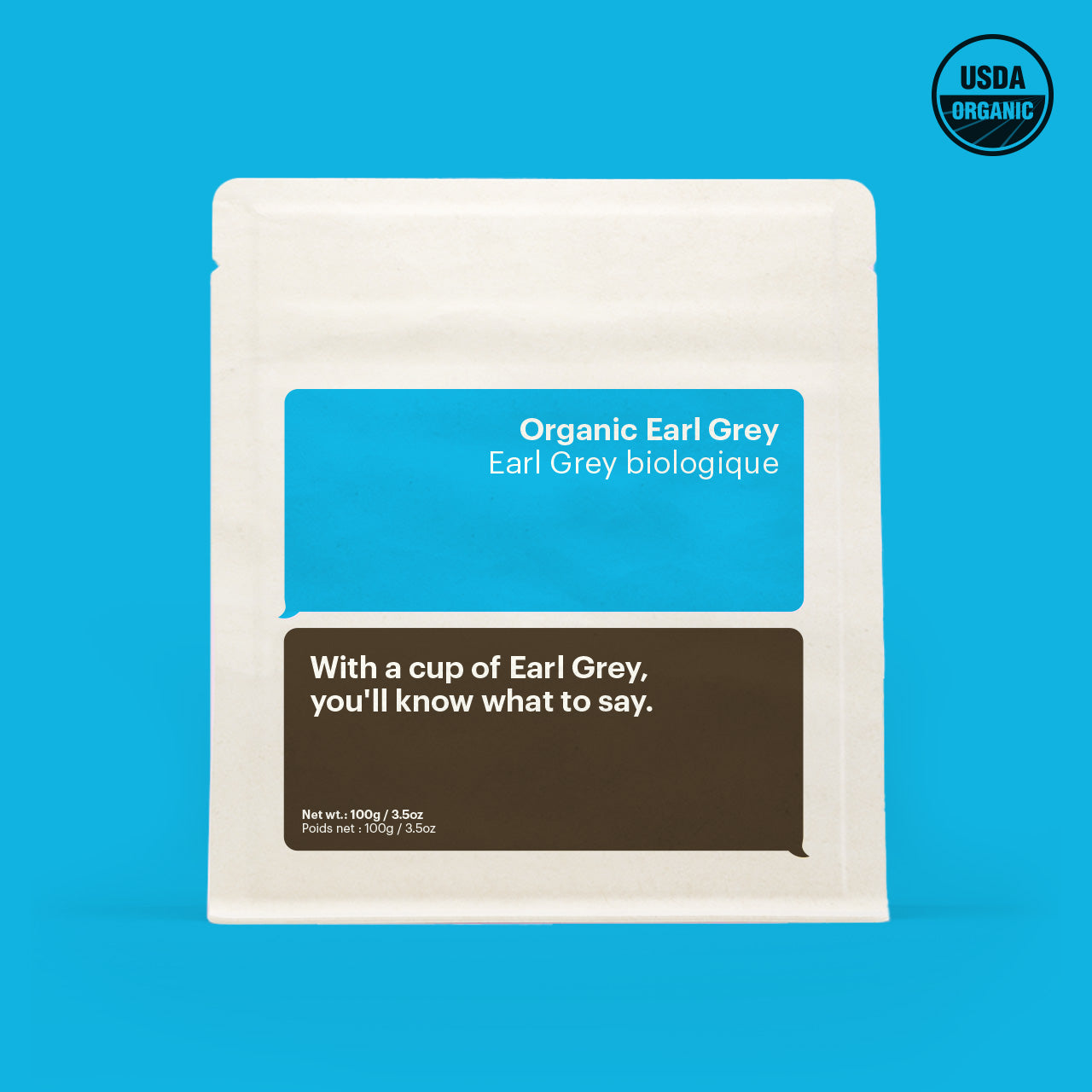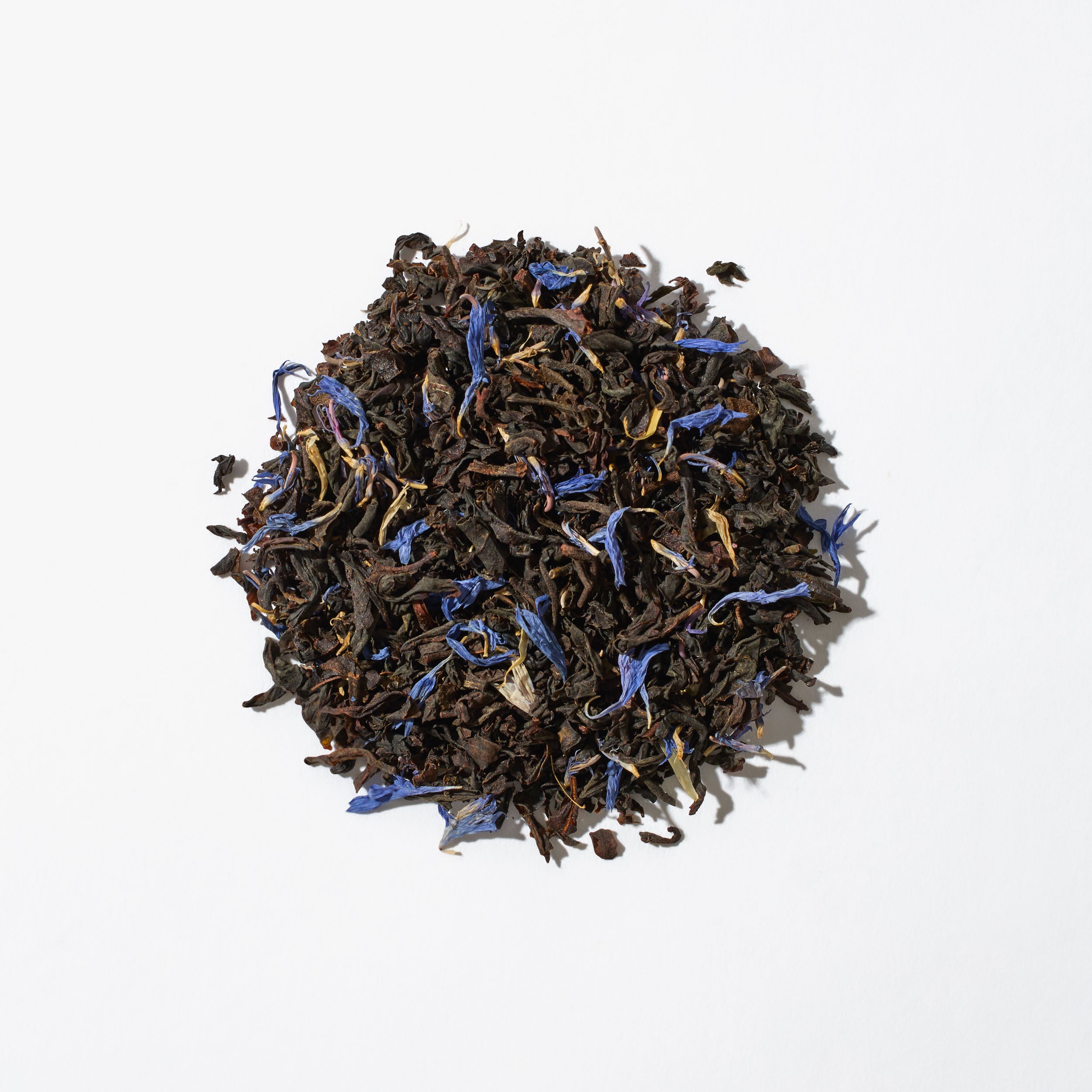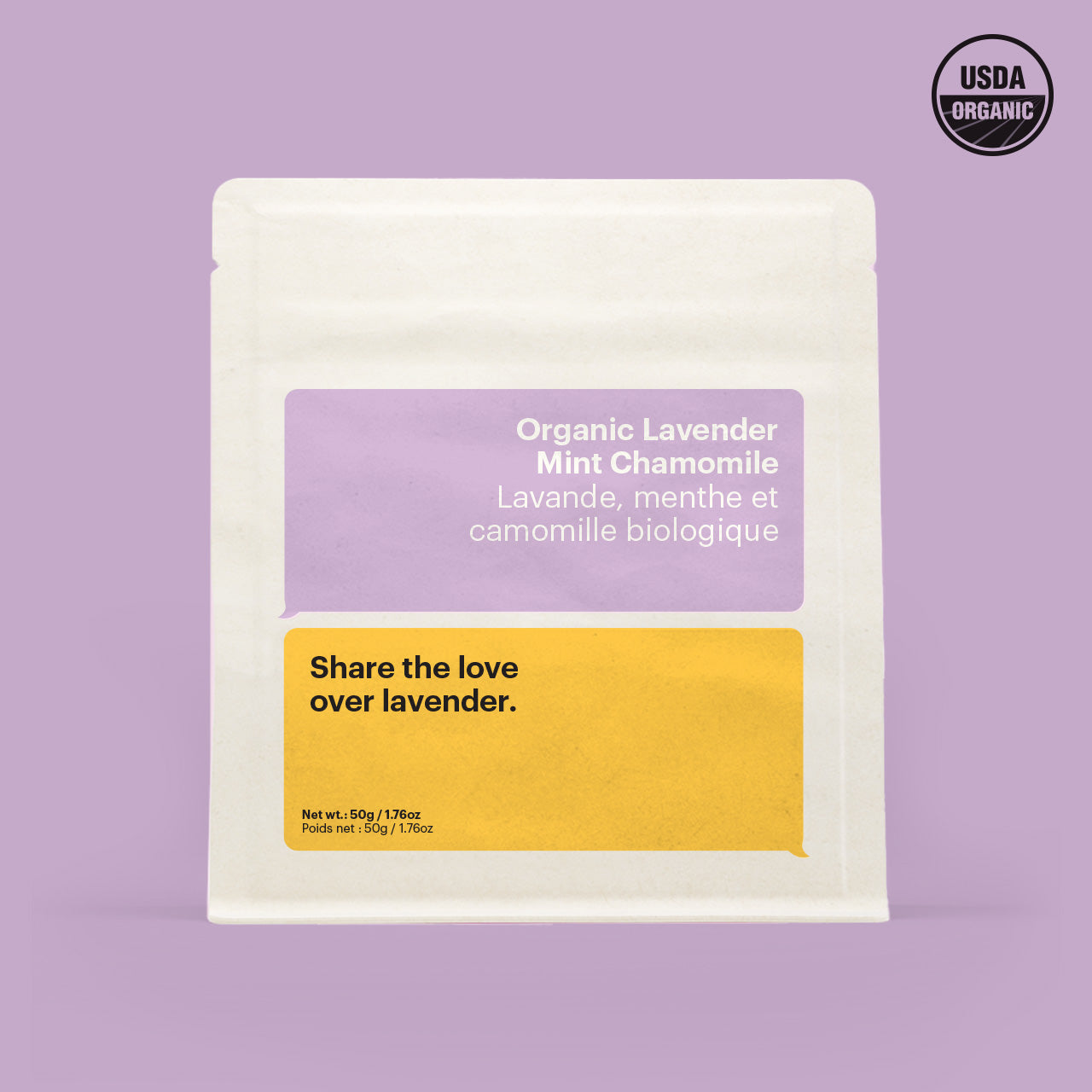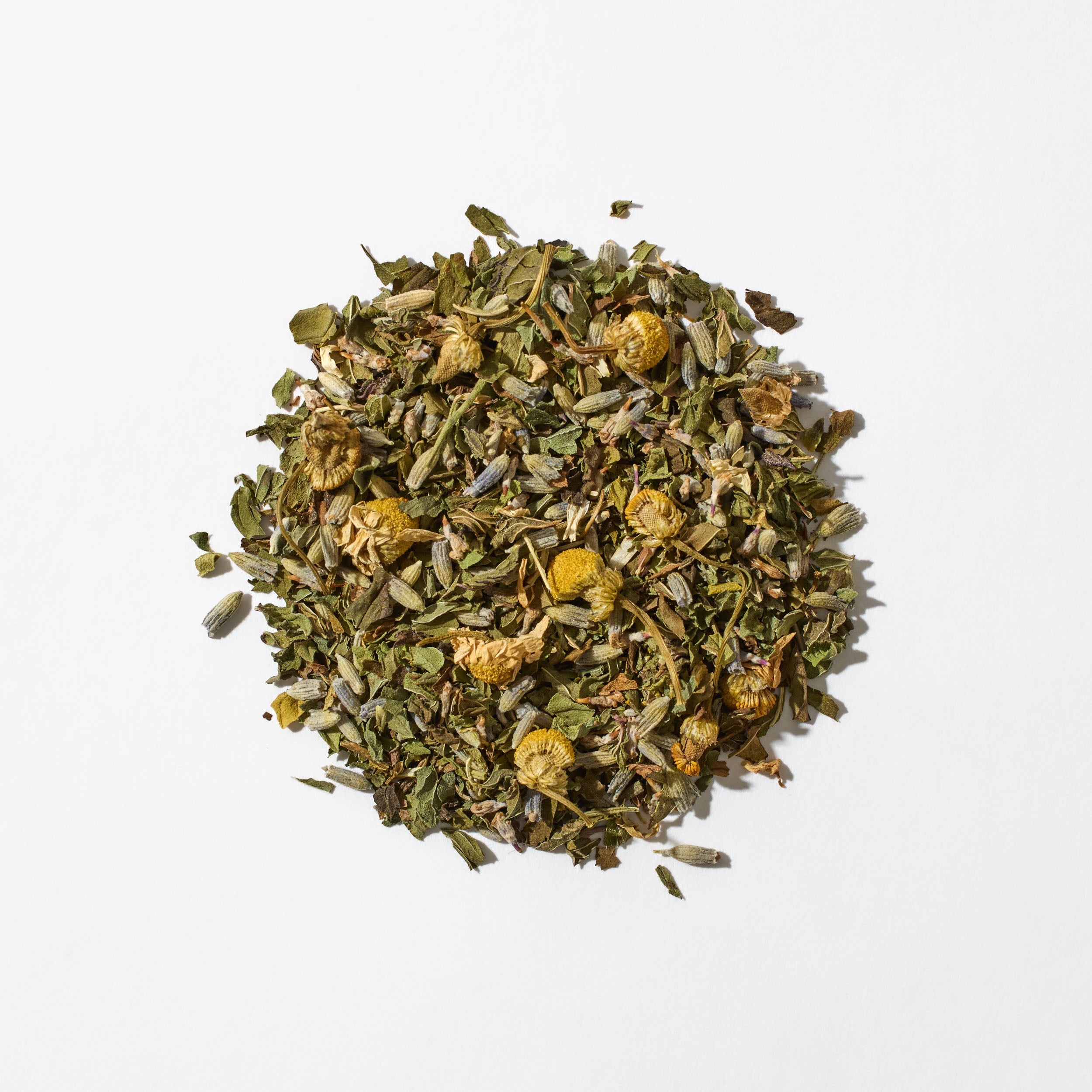Whisked until frothy or stirred into a latte, this cozy tea drink is always a treat – but does matcha have caffeine? Today, we’re sipping this green wonder and marveling at the amazing thing that is matcha’s caffeine levels.
It’s fresher than a warming black tea and even more revitalizing than our organic green tea leaves, but where matcha really stands out is with its energy-boosting properties. So, let’s find out exactly how much caffeine is in matcha powder and what other nutritious antioxidants you can expect to find in your cup.
How Much Caffeine is in Habit Matcha Powder?

Matcha, a powdered form of green tea, is a natural source of caffeine. To make one serving of our ceremonial-grade premium Habit Organic Matcha, you need just half a teaspoon of matcha powder. That’s up to 53mg of caffeine!
Matcha has roughly between 18.9mg and 44.4mg of caffeine per gram of powder. To put that into comparison:
- A cup of green tea has roughly 38mg of caffeine.
- A cup of black tea has roughly 47mg of caffeine.
- A cup of brewed coffee has roughly 96mg of caffeine.
Remember, when you are drinking matcha you are sipping those tea leaves directly. Rather than green tea, black tea, or coffee which removes the leaves and beans before serving, matcha serves you the tea leaf itself, whisked into water.
So, that’s why matcha has more caffeine than green tea, even though they’re technically made of the same ingredient. In addition to growing the tea plants in the shade to make matcha (which increases caffeine levels in the leaves), the fact that you’re consuming the leaves means you get 100% of the caffeine they contain.
What About a Matcha Latte?

We’ve got the matcha, but you bring the milk. How does that change how much caffeine is in a matcha latte?
If you want to use our organic matcha powder to make a simple matcha latte, you’re not actually changing the amount of caffeine contained in the tea. Adding milk to tea doesn’t reduce or increase the amount of caffeine. It all depends on how much tea you used to begin with. If you’re sticking with our recommended half teaspoon of matcha powder, it doesn’t matter whether you add milk, an extra splash of water, a cheeky teaspoon of honey, or any other add-in.
Caffeine in Matcha vs Coffee

If a cup of matcha has up to 53mg of caffeine but a cup of brewed coffee has up to 96mg of coffee, should you always choose coffee when you need an energy boost?
Maybe not. First, exactly how much caffeine is in coffee vs matcha really depends on how the coffee was prepared. The milk in your coffee doesn’t change the caffeine levels, but how the beans are used does.
- A cup of brewed coffee has roughly 96mg of caffeine.
- A single espresso shot has roughly 64mg of caffeine.
- A cup of instant coffee has roughly 62mg of caffeine.
- A cup of decaf coffee has roughly 2mg of caffeine.
That’s not the only difference, however. Traditionally, matcha was prepared as part of a ceremony (hence ceremonial grade is the best you can buy as it’s made for drinking rather than culinary use) and is perfect for slowing your roll.
Just like with coffee, you can take a moment to sip your matcha, chat with a friend, and recharge all your batteries. You might just find that matcha caffeine does more too…
Caffeine in Matcha Powder Hits Different
Good matcha is smooth, and so is its energy boost. It comes on gently, lifts your spirits, focuses your mind, and doesn’t drop off a few hours later like driving off a cliff.
This is thanks to antioxidants and amino acids found in green teas, including matcha. One particular amino acid that’s found only in tea leaves and a few fungi species is l-theanine. Unlike a cup of coffee, the l-theanine in tea leaves slows the onset of caffeine. It provides a natural energy lift rather than an instant buzz. The combination of l-theanine and caffeine is also beneficial for your brain, reducing stress and boosting your alertness and accuracy even when multitasking.
As the tea plants harvested for matcha are shade-grown, they’re also higher in a catechin known as epigallocatechin gallate (EGCG). This catechin is linked to potential chemo-protective properties and can slow down brain aging for enhanced cognition.
How to Drink Matcha for A Healthy Energy Boost
Knowing how much caffeine is in matcha, when is the best time to whisk up this frothy green drink for an energy boost?
Caffeine takes anywhere from 15 minutes to two hours to really kick in, being fully absorbed into the bloodstream in 45 minutes. With the smoothing effects of l-theanine in matcha, the onset is even gentler. So, sip your morning Habit Organic Matcha around an hour before you need the energy to lift you up.
The half-life of caffeine is up to 6 hours but it can stay in your body for up to 10 hours. If you’re sensitive to caffeine, this means you should avoid matcha in the afternoon to ensure it’s fully out of your system before bedtime. For a flavorful drink without the kick, try a caffeine-free tea for your afternoon break instead.
The FDA states that 400mg of caffeine per day is the most you should consume. That’s equivalent to about eight cups of Habit Organic Matcha, so you don’t need to worry about drinking unhealthy levels of caffeine when you consume a cup or two (or three) in the morning.
For our energizing matcha, we carefully source ceremonial-grade powder from Japan. This is a tea worthy of a little ceremony! Whisk up a cup or two to share with friends and let those smooth grassy notes and mellow caffeine hit brighten up your day. Why not share our ‘does matcha have caffeine?’ article as a conversation starter too?
Sources
- https://www.ncbi.nlm.nih.gov/pmc/articles/PMC7796401/
- https://www.mayoclinic.org/healthy-lifestyle/nutrition-and-healthy-eating/in-depth/caffeine/art-20049372
- https://www.sciencedirect.com/science/article/abs/pii/S0021967303011336?via%3Dihub
- https://pubmed.ncbi.nlm.nih.gov/18681988/
- https://pubmed.ncbi.nlm.nih.gov/34443485/
